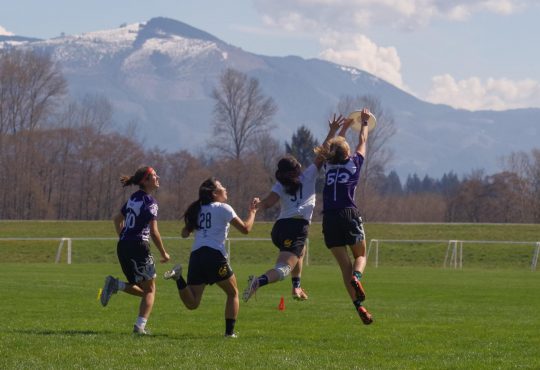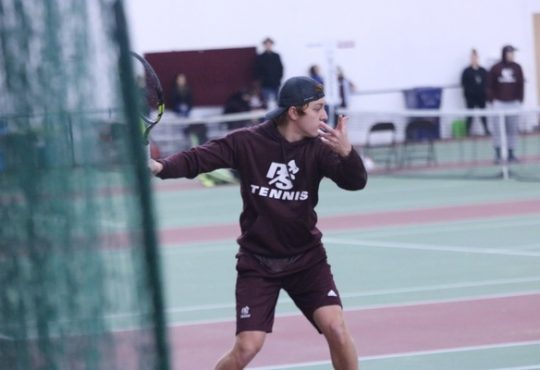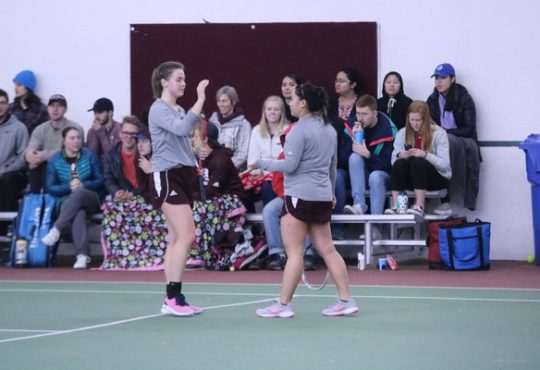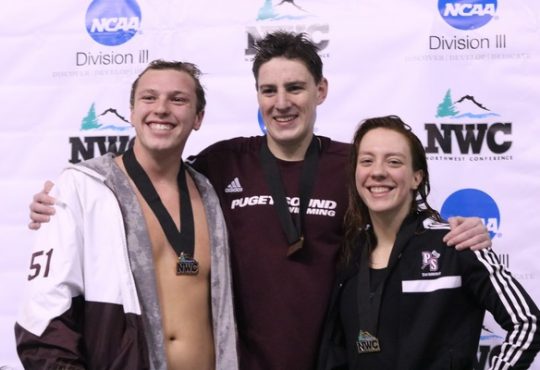Ultimate Frisbee is a rapidly growing sport that combines elements of soccer, basketball and football and is represented by not one, but two teams here at Puget Sound.
Ultimate Frisbee—commonly referred to as Ultimate—is a sport in which a Frisbee is moved around the field by passes thrown from player to player on a team.
The object of Ultimate is to move the Frisbee starting from one end of the field to the end zone at the opposite end.
A successful completion of a pass inside the end zone earns the team one point, with the goal of ending the game with more points than the other team.
Ultimate was first played in 1949 in the parking lot of Columbia High School in Maplewood, N.J. using telephone lines and piles of jackets to mark goal lines.
Today, just a short 46 years later, Ultimate has developed into a multi-national sport with multiple divisions and leagues.
Not only is the sport growing in location, but it’s also rapidly growing in membership.
In 2013, USA Ultimate, the national governing body of Ultimate leagues, reported a membership increase of a staggering 29 percent up from 2012.
It’s obvious that Ultimate is a quickly growing sport, but why? The reason is actually a combination of factors.
Sam Jones (Bend, Ore.) and Alan Henzy (Ease Hampton, Conn.), the captains of the women’s team Clearcut and the men’s team the Postmen respectively, take a look at what is causing Ultimate’s rapid increase in popularity.
Jones, a six-year Ultimate player, believes that one of Ultimate’s biggest advantages is the approachability and welcoming nature of the sport.
Jones credits Ultimate’s approachability to the ease of learning the sport.
“It’s a sport that you can be taught how to play and become one of the best on the team by the end of the year,” Jones said.
Ultimate differs from other collegiate sports in that a player can walk straight on to the team, even without years of experience playing and be an equal part—unlike other sports, where previous training and an invitation to play is required.
In addition to the ease of learning Ultimate, the sport is also approachable in that it provides a sense of community to its players.
Both Jones and Henzy have witnessed firsthand Ultimate’s international community. Henzy recalls his semester abroad in Vietnam.
“[I] was able to join a team and travel to multiple countries to play in tournaments,” Henzy said.
Jones had a similar experience in Ireland.
“The first thing I did was find the Frisbee team, and they welcomed me seamlessly,” Jones said.
Unlike other sports that are popular only in a handful of countries, Ultimate is played globally, which allows for a wealth of opportunities to grow the sport.
Domestically, Ultimate is a welcoming community too. Any Ultimate player can tell you that their experiences off the field with other teams are what make Ultimate so different from other sports.
“Every tournament turns into a massive sleepover [between teams],” Jones said.
It is the distinction between team and community that differentiates Ultimate Frisbee from any other sport and is one of the reasons it’s becoming so popular around the world.
Henzy describes his favorite Ultimate experience as one that defines Ultimate’s inter-league community.
“For me, the best experience that I have ever had with Ultimate was going to Potlatch. Potlatch is an enormous tournament where all 5,000 attendees sleep in tents surrounding the fields. It is really indescribable how much love and happiness is at that tournament,” Henzy said.
Ultimate’s growing popularity is because it is a sport where competitiveness leads not to rivalries, but friendships and bonds that last a lifetime.
As for the ultimate teams at Puget Sound, we can expect big things from both the Postmen and Clearcut this year.
Although the teams are currently in their off season, they are preparing for tournaments.
The leaders of both teams are working hard to train new players and improve their game. Clearcut’s junior captains Becca Ebert (Eden Prairie, Minn.) and Ellen Mueller (Denver, Colo.) have been working alongside Jones to continue strengthening the team going into their spring season.
The Postmen’s junior captain Riley Carpenter (Boulder, Colo.) is working with Henzy to improve for the upcoming season as well.
Both teams have received bids in previous years and are hoping for yet another bid to their national tournaments in the upcoming season.
You can follow Puget Sound’s Ultimate teams’ progress on Twitter and Facebook at Facebook.com/PugetSoundPostmen and @wutwutclearcut on Twitter.





